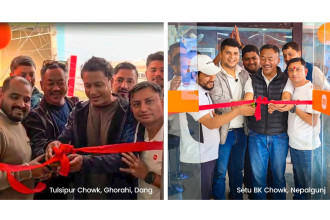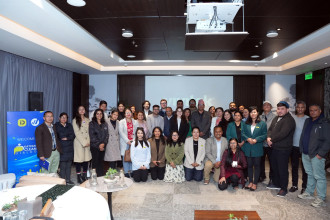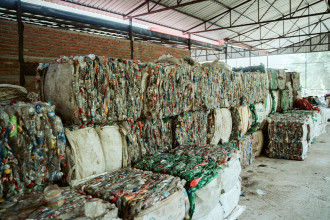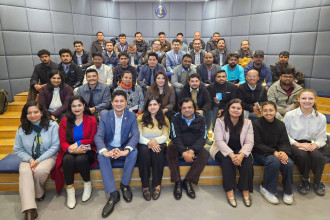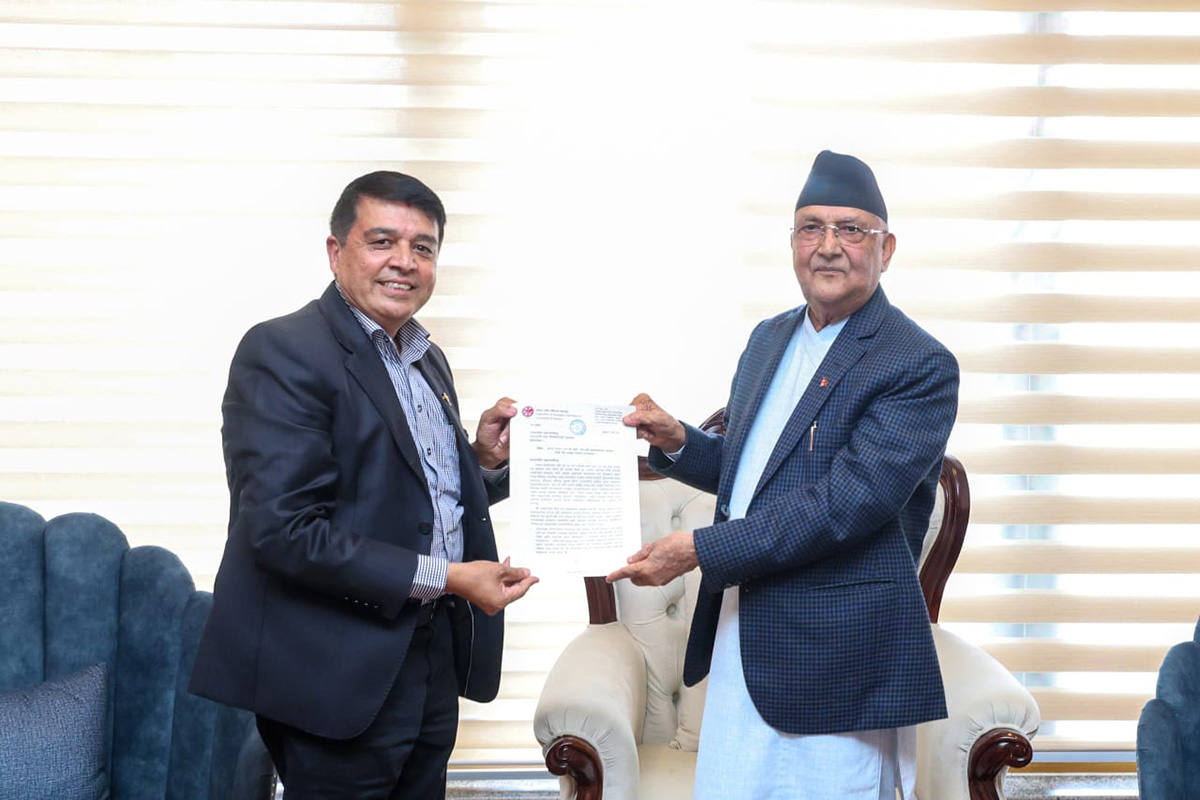
KATHMANDU: Federation of Nepalese Chambers of Commerce and Industry (FNCCI) President Chandra Prasad Dhakal has urged Prime Minister KP Sharma Oli to implement reforms in budget for fiscal year 2025/26 and in recently enacted provisions affecting the private sector.
At a meeting on Saturday, Dhakal thanked the prime minister for incorporating FNCCI suggestions into the budget for upcoming fiscal year and requested facilitation, saying certain provisions and newly implemented policies have adversely affected businesses.
On the occasion, PM Oli said his government is striving to create a private-sector-friendly business environment and welcomed FNCCI’s recommendations.
On Sunday, Dhakal met Deputy Prime Minister and Minister for Finance Bishnu Prasad Paudel to present FNCCI’s proposals for Budget for upcoming fiscal year.
Dhakal’s suggestions to the prime minister included topics related to VAT on air tickets, gems and jewellery; enhanced facilities for hydropower projects; Euro 5 and Euro 6 emission standards for vehicles; regulations on fairs and festivals; Maximum Retail Price (MRP) labelling; and import and export rules for plant-based products.
The FNCCI called for removal of VAT on gold and silver and of the extended luxury tax, stating that VAT on airfares and 2% luxury tax on 5-star hotels and resorts have made Nepal an expensive tourist destination and driven ticket buyers abroad.
The FNCCI also sought a provision to import vehicles and spare parts ordered under old Euro 3 standard, stating the new Euro 5 and Euro 6 rules from the Ministry of Forests and Environment (MoFE) have hindered such imports. With agreements to export 10,000MW of electricity to India and to begin exports to Bangladesh, the FNCCI requested extension of current tax exemption for hydropower construction — valid until 2026 — until 2036 to support infrastructure development.
The FNCCI stressed the need for clarity in power purchase agreements (PPAs), saying the ‘take and pay’ policy for run-of-river projects has created investment uncertainty and requires further government clarification.
For more than two decades, over 130 district and municipal chambers affiliated with the FNCCI have organised local fairs and festivals to promote regional products and boost economic activity. The FNCCI urged that only these chambers be permitted to organise such events, and sought facilitation for the export of steel products affected by Indian quality standards and portal issues, as well as tariff adjustments where raw-material duties exceed those on finished goods.
Additionally, the FNCCI demanded that implementation of mandatory MRP labelling follow consultation with private sector and that the Pest Risk Analysis (PRA) process for plant-product import and export be simplified and made cost-effective.
Dhakal said that addressing these demands will boost investment, create jobs and drive economic reform, adding that the economy’s momentum will grow through government–private sector collaboration.



